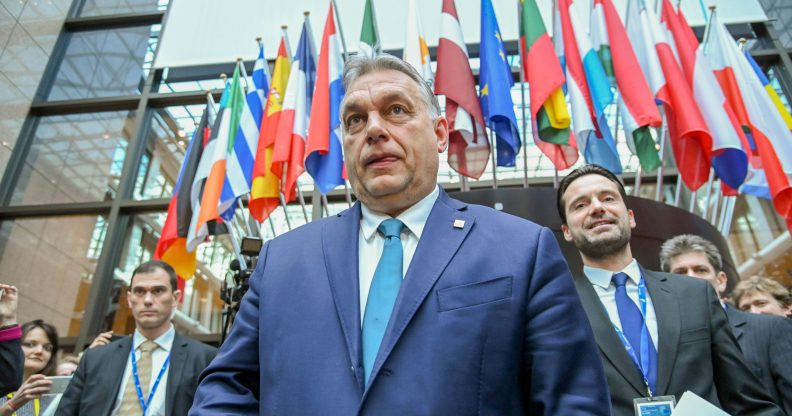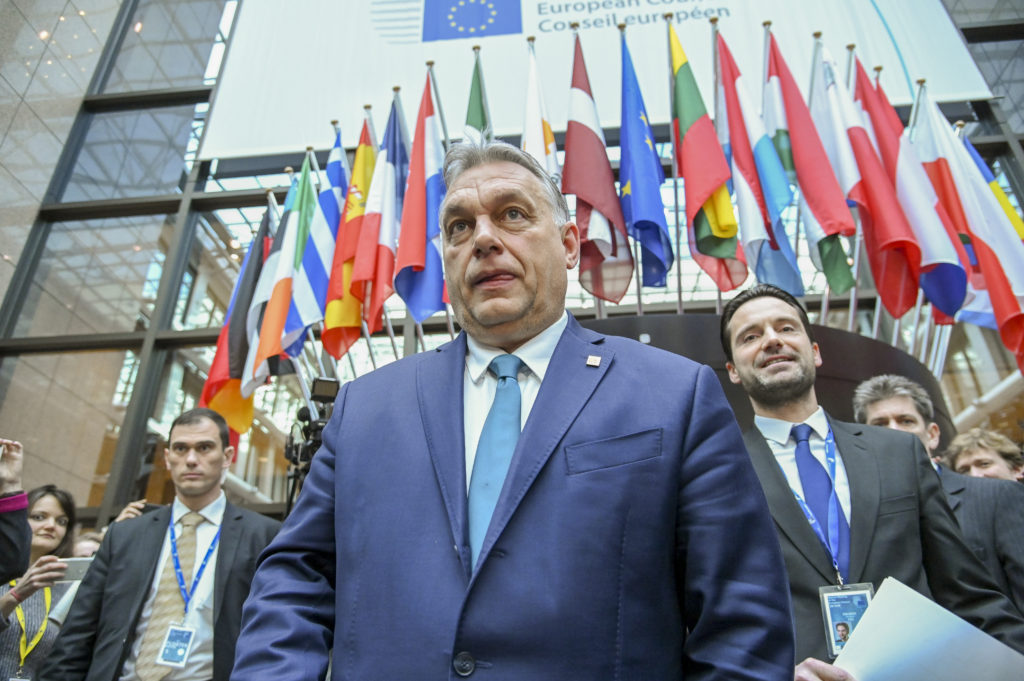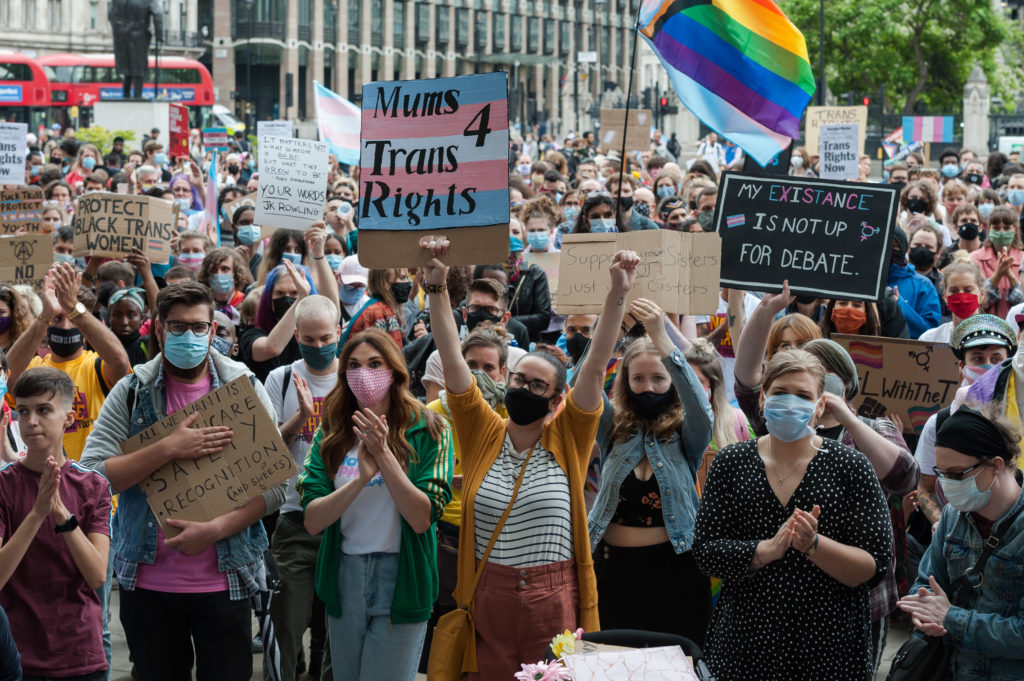Trans people are still criminalised in 13 United Nation member states with rights in every corner of the world ‘regressing’

Viktor Orban in Brussels in February. His move to strip trans people of their human rights has been condemned by more than 60 MEPs. (Riccardo Pareggiani/NurPhoto via Getty Images)
Viktor Orban in Brussels in February. His move to strip trans people of their human rights has been condemned by more than 60 MEPs. (Riccardo Pareggiani/NurPhoto via Getty Images)
At least 13 member states if the United Nations still criminalise trans people, while others weaponise morality laws to persecute the community, a report published Wednesday (30 September) found.
Nigeria, Oman and Lebanon were ranked by LGBT+ rights group ILGA World as holding among the world’s most brutal transphobic legislation.
“It is a difficult time for trans communities globally,” said ILGA World Trans Steering Committee chair Jabu Pereira in the Trans Legal Mapping Report, which assessed gender law across the 143 UN member states and 19 other jurisdictions.
The report warned: “In every region of the world where we have been documenting legal gender recognition, regressions have occurred.”
As many member states of the United Nations make leaps in trans rights, others continue to criminalise.
The report’s authors reflected on the patchwork of progress the world has seen when it comes to trans rights.
As much as Britain and Hungary, among many more, have seen trans rights stalled or whittled away, others, such as Belgium and France, have seen leaps made. Particular leaps in non-binary rights were also recorded in the last two years.
While the following member states of the United Nations, they found, continue to criminalise trans people: Brunei, the Gambia, Indonesia, Jordan, Kuwait, Lebanon, Malawi, Malaysia, Nigeria, Oman, South Sudan, Tonga and the United Arab Emirates.

Viktor Orban in Brussels in February. His move to strip trans people of their human rights has been condemned by more than 60 MEPs. (Riccardo Pareggiani/NurPhoto via Getty Images)
Moreover, researchers said that the criminalisation of trans people can happen through “seemingly innocuous laws, such as those related to public spaces”.
From laws over loitering to “public nuisances”, these policies police trans people and constrict how they can live their lives – “just as damaging”, the researchers said.
“Some of the more shining nations when it comes to legal gender recognition are based in the global south, such as Argentina,” Pereira said, referring to how the country introduced self-identification for trans people changing the gender markers on official documents in 2012.
‘Uncertainty, backlash and attacks’: The last two years of trans rights have been some of the hardest.
Self-ID, researchers observed, has become a pinched battleground in many countries, acting as a bitter proxy for a “debate” on trans people’s very existence.
Since 2018, they stressed, trans rights have been “marked by uncertainty, backlash and attacks”.
“Gender ideology, in the form of conservative positioning around the fixity of ‘biological’ sex, the emergence [of] trans exclusionary radical feminists (TERFs) and right-wing politicians positing LGBT rights against national identities, have all had detrimental effects on our communities.”
A great toll on trans rights indeed. Researchers contrasted trans rights organisations, many running on threadbare budgets, to well-funded and well-resourced anti-trans groups.
And the level of anti-trans vitriol in Britain, the researchers said, has even been “exhorted to many of the other Commonwealth countries”.

Transgender people and their supporters gather in Parliament Square to protest against potential changes to the Gender Recognition Act on 04 July, 2020 in London, England. (WIktor Szymanowicz/NurPhoto via Getty Images)
Across three years, Britain has seen proposed reforms to Gender Recognition Act – the bedrock of gender recognition law – dogged by transphobic media coverage and powerful lobbying groups.
As much as countless polls have shown such views do not represent Britons as a whole, the transphobic playbook of inflamed, freewheeling misinformation worked. The reforms were scrapped by ministers this month.
Through Britain’s trans rights remained stymied, the researchers shone a light on the array of countries and states which have, since 2017, moved to a de-medicalised self-ID model.
“Australia (more states), Belgium, Brazil, Chile, Costa Rica, France, Greece, Luxembourg, and Portugal,” they said. All of which, surprise surprise, are fairing far better for doing so.

